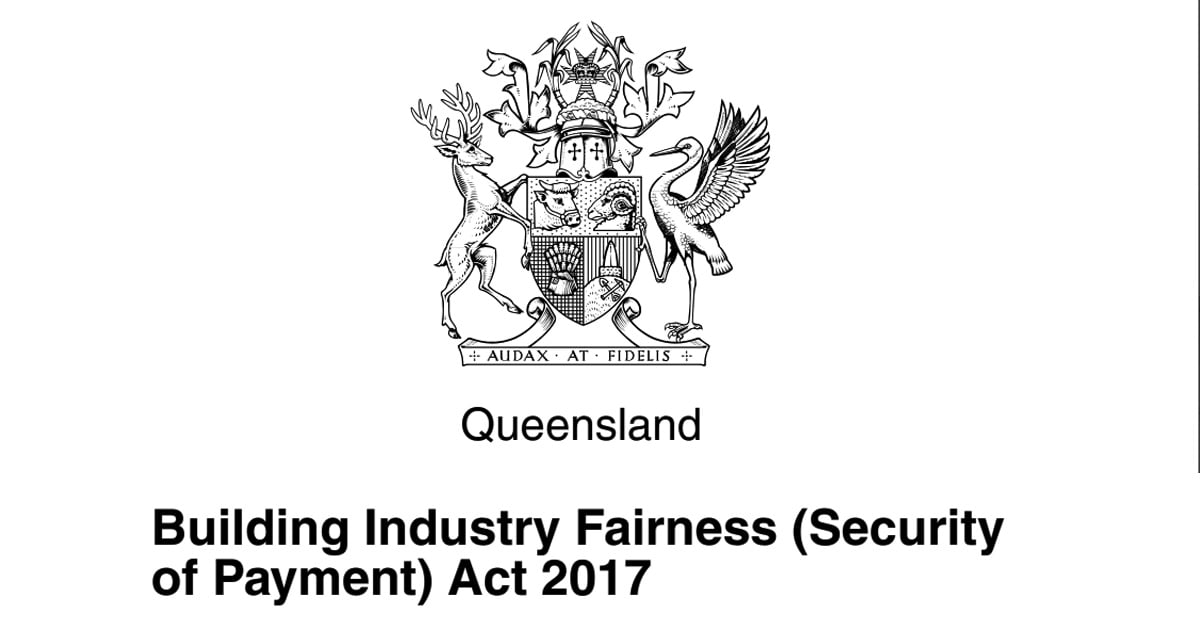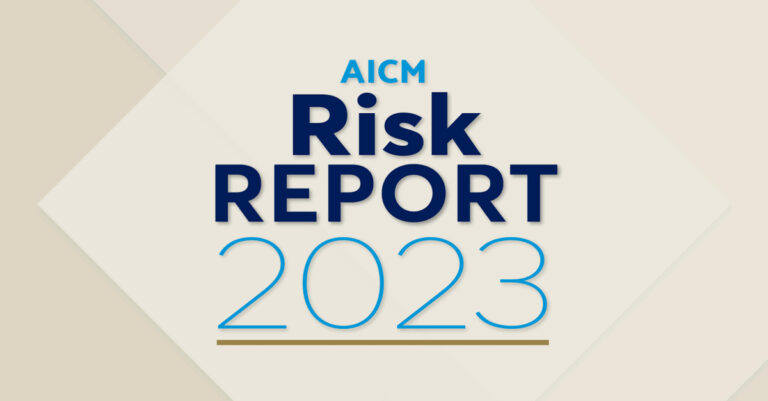
CREDIT INSIGHTS
QLD – The Building Industry Fairness (Security of Payment) Bill 2017

On 22 August 2017, the Queensland government introduced the Building Industry Fairness (Security of Payment) Bill2017 (the Bill). The Bill contains the most controversial, radical and wide-reaching amendments to legislation governing the building and construction industry since the initial introduction of the Building and Construction Industry Payments Act 2004 (BCIPA) in 2004. The maximum penalties facing head contractors for offences against various sections of the Bill include imprisonment.
The Bill contains the most controversial, radical and wide-ranging amendments to legislation governing the building and construction industry since the introduction of the Building and Construction Industry Payments Act 2004 (BCIPA)
The ALP has introduced the Bill in an effort to respond to concerns that subcontractors are not getting paid for work performed on large construction projects and has described the Bill as, “putting the construction industry on the level.” In reality, however, the Bill will have the effect of shifting the pendulum of power in the building and construction industry away from the head contractor and back to the subcontractor, resulting in a construction landscape more uneven than ever before.
The Bill provides for the amendment and consolidation into one Act of the BCIPA and the Subcontractors’ Charges Act 1974 (SCA), as well as providing for three new significant changes to the Queensland building and construction industry:
- introduction of Project Bank Accounts (PBAs);
- re-introduction of mandatory financial reporting for building companies; and
- new measures and powers to allow the government to stop corporate phoenixing.
Security of payment for subcontractors
There are numerous key changes that you need to be aware of. The radical amendments foreshadowed to the BCIPA include:
- if a respondent fails to provide a payment schedule within the required timeframe in all circumstances it will become liable for the full amount of the payment claim (i.e. no second chance). Additionally, a respondent will be precluded from providing an adjudication response in circumstances where it failed to provide a payment schedule;
- claimants are once again entitled to make an application to the Court for summary judgment for unpaid progress claims where the respondent has failed to provide a payment schedule;
- a payment claim does not need to be endorsed under the BCIPA – i.e. every claim is a payment claim;
- there is a penalty for failing to submit a payment schedule without reasonable excuse (up to a maximum of 100 penalty units which equates currently to $12,615); and
- an adjudication response cannot introduce any new reasons for withholding payment that were not included in the payment schedule (regardless of whether the payment claim is standard or complex) and will be restricted to a length that is yet to be confirmed by regulation.
Chapter 4 of the Bill contains a slightly modified version of the subcontractors’ charges regime that currently operates through the SCA. Although the Bill provides for minimal amendments to the current structure under SCA, it is noted that a subcontractor now commits an offence if they fail to respond to a notice of claim of charge within 5 business days.
PBAs
In addition to the relocation and amendments of the BCIPA and SCA, the Bill provides for the introduction of PBAs on all building contracts for government projects with a building price between $1,000,000 and $10,000,000. Although unconfirmed at this stage, the government has indicated that PBAs will apply to every construction project, government or otherwise, over $1,000,000. This is a radical and controversial introduction which may have the opposite effect of improving contractor solvency.
The head contractor is required to set up a PBA for the project within 20 business days after entering in to the first subcontract. This will require the head contractor to open three separate trust accounts being a general trust account, retention trust account and disputed funds trust account. A failure to do so may result in the head contractor incurring a significant fine.
In short, PBAs are externally administered bank accounts that operate as a trust account between the principal and head contractor. The head contractor and each subcontractor are beneficiaries of the PBA. Under the Bill, PBAs will involve the following process:
- the principal deposit amounts payable to the head contract directly into the PBA;
- if a subcontractor is entitled to be paid under a subcontract with the head contractor, the head contractor will pay the subcontractor with funds from the PBA; and
- the head contractor can only be paid from the PBA when it is owed money by the principal under the building contract and the head contractor is not liable to pay a subcontractor for the same work.
Importantly, in circumstances where there is a shortfall in the PBA, the head contractor is required to deposit funds equal to the shortfall. Additionally, the head contractor is required to deposit into the PBA the difference of any disputed payment amount as between it and a subcontractor. We anticipate that this requirement will create significant challenges for head contractors in managing project cash flow.
The PBA regime proposed in the Bill is similar to the PBA regime adopted by the Western Australian government through amendments to the Construction Contracts Act 2004 (WA). This is a particularly controversial path for the current Queensland government to take having regard to the extensive criticism of the Western Australian PBA regime for unnecessarily creating more red tape, restricting cash flow during projects, delaying the payment of subcontractors and significantly increasing the administrative costs of both head contractors and subcontractors. Further, the suggested PBA regime is not designed to prevent insolvencies in the Queensland building and construction industry.
If there is an issue with the security of payment for subcontractors, at best, the introduction of PBAs and the associated increase in red tape and administrative costs for the construction industry is a band-aid solution to a far greater problem. Ultimately, any extra administrative costs will be borne by head contractors and passed on to principals.
Financial requirements and amendments to the QBCC Act
To assist in the monitoring of current licence holders, the Bill has increased the scope of the power of the QBCC to require a building company to produce their financial records and re-introduced the mandatory financial reporting for building companies that was repealed by the previous LNP government. When the former LNP government repealed the mandatory financial reporting requirements in 2014 the QBCC estimated that this would save the building and construction industry $31,000,000 annually. The proposed amendments also aim to further regulate corporate phoenixing, a situation where a director places a construction company in to liquidation in order to avoid repaying creditors but later re-emerges with a new construction company. The proposed amendments to the Queensland Building and Construction Commission Act 1991 (Qld) aim to regulate corporate phoenixing by extending the concept of “excluded individual” to a person who was a director or an influential person of a company within 2 years of it going in to liquidation.
Conclusion
Although the Bill will be subject to amendments and rigorous debate, in its current form, the proposed changes will result in more red tape and increased administrative costs for the Queensland building and construction industry.
Article supplied by Thompson Geer Lawyers, Brisbane







